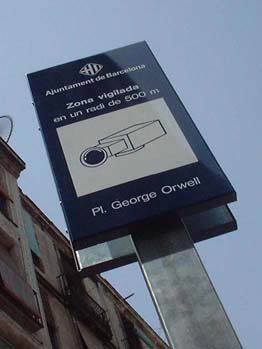You can, apparently, play videos on your iPod, provided (a) you have already installed Linux on it and (b) have a PhD in comp sci. Having lots of free time would also help. I don’t qualify, alas.
Death by chocolate
An unsuspecting Cory Doctorow was lured by cruel, unscrupulous Ben Hammersley into Hemingway’s in Florence. Outcome described as follows:
Afterwards, I fell asleep for half an hour on the sofa in Hemingway’s, collapsed on one of my dining companions. My brain was overwhelmed with the tastes, and it had to shut my body off so that it could process the input. I have a feeling that from now on, whenever a little money finds its way into my pocket, the temptation to blow it on a plane ticket to Florence (cheap from London, as these things go) and have a cup of Hemingway’s Montezuma is going to be nigh-irresistible. I no longer feel the need to blow my cash on computers or gadgets — just hook an IV of this thing straight into my arm and leave me to die by chocolate.
Homage to Catalonia

The George Orwell Plaza in Barcelona has 24×7 video surveillance. Thanks to BoingBoing for the link.
Quackery

What is it about ducks? The other morning, Chris Patten, the former EU Commissioner for External Affairs (and now Chancellor of Oxford University), described the EU Constitution as a “dead duck” after the Dutch referendum result. This morning I heard another politician on the radio describing Jacques Chirac in the following terms: “He may be a lame duck president, but he’s a lame duck with a bite”. And who has ever seen a lame duck anyway?
Update: My daughter reminds me that she was once bitten by a duck. But that was because he coveted the bit of chocolate cake she was holding at the time.
Bless me, father, for I have Googled
Today’s Observer column on following what Vannevar Bush called “associative trails” — into the confessional.
Cybersecurity
Ed Felten has some interesting reflections on the threat of cyberattack on the US information infrastructure. He puts his finger on the nub of the problem:
the traditional governmental processes are ill-suited for addressing cyberthreats. The main reason is that national security processes result in plans for governmental action; but the cyberthreat problem can be solved only by private action. The cyber infrastructure is in private hands, and is designed to serve private ends. Government can’t easily change it.
So what can be done? One idea he discusses is that since unprotected computers in private hands make the entire infrastructure vulnerable, then perhaps individual computer users ought to be personally liable for damage caused by their carelessness/ignorance. Ed points out that there are lots of things wrong with this idea. But, oddly, he doesn’t discuss another obvious possibility — that software manufacturers like Microsoft should be legally liable for damage caused by the security holes in their products. I’ve never understood why the computer industry should be able to avoid liability in this way. Just imagine the fuss there would be if automobile manufacturers were able to avoid being held responsible for flaws in their products. It’s unthinkable. But we tolerate this crazy situation with computers. Why?
Throwing the book at it
Quentin had an unfortunate accident. He wanted to check a word, so went to take down the OED (he doesn’t say which edition, so I’m guessing it was the wonderful two-volume Shorter Oxford) from a shelf over his desk. But the book fell on his PowerBook and did a good deal of damage. Moral of the story: keep the OED on the desk!
This is not a cat

I know — I’m beginning to sound like Magritte. But this is a clever bird-scarer created by friends to stop feathered fiends frustrating their attempts to re-seed the lawn. Having magnifying glasses for the eyes is a really nice touch, don’t you think.
What music, Mum?

Photographed at a concert recently. This kid had his back to the orchestra from beginning to end. Reminded me of the famous description of a psychiatrist as “someone who goes to Les Folies Bergeres and watches the audience”. Photographed with the unobtrusiveness that only an M-series Leica can provide.
Trendy appliances often least reliable
Well, well… According to this Guardian report,
Dyson vacuum cleaners, Smeg dishwashers and Hoover washing machines may be the more fashionable appliances on the domestic scene, but they are also the most likely to break down, the consumers’ magazine Which? says today. Owners have to have them repaired more often than those who opt for less trendy brands, according to the experiences of nearly 15,000 Which? readers who responded to a survey. People are buying into “fashion” brands for their homes, despite them proving far more unreliable, the researchers say.
So I’ll stick with our boring old Miele, then.
